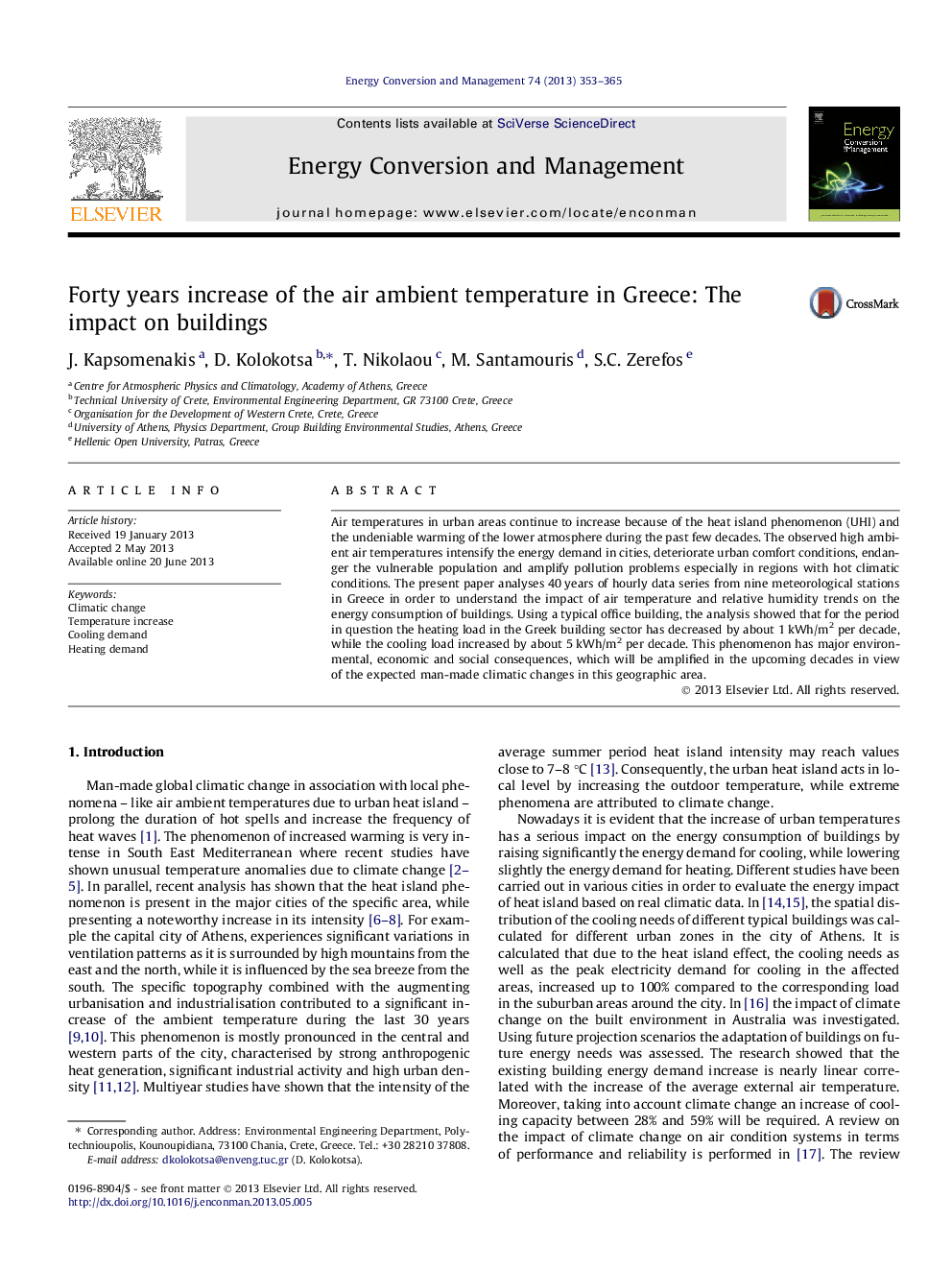| Article ID | Journal | Published Year | Pages | File Type |
|---|---|---|---|---|
| 7166813 | Energy Conversion and Management | 2013 | 13 Pages |
Abstract
Air temperatures in urban areas continue to increase because of the heat island phenomenon (UHI) and the undeniable warming of the lower atmosphere during the past few decades. The observed high ambient air temperatures intensify the energy demand in cities, deteriorate urban comfort conditions, endanger the vulnerable population and amplify pollution problems especially in regions with hot climatic conditions. The present paper analyses 40Â years of hourly data series from nine meteorological stations in Greece in order to understand the impact of air temperature and relative humidity trends on the energy consumption of buildings. Using a typical office building, the analysis showed that for the period in question the heating load in the Greek building sector has decreased by about 1Â kWh/m2 per decade, while the cooling load increased by about 5Â kWh/m2 per decade. This phenomenon has major environmental, economic and social consequences, which will be amplified in the upcoming decades in view of the expected man-made climatic changes in this geographic area.
Related Topics
Physical Sciences and Engineering
Energy
Energy (General)
Authors
J. Kapsomenakis, D. Kolokotsa, T. Nikolaou, M. Santamouris, S.C. Zerefos,
